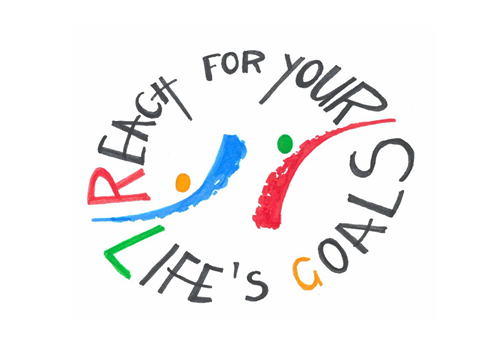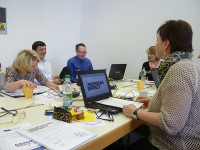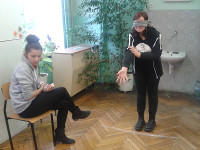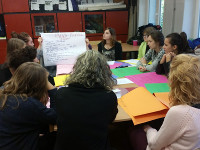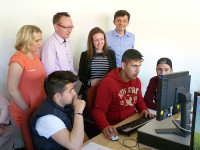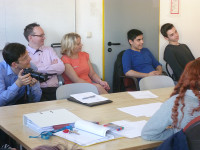The results of the project
The products of the RLG project are downloadable and can be freely used by referring to the source.
Project results in German
Project results in Polish
Foundation study
The purpose of the analysis was to define the characteristics typifying the NEET young people and the social-economic opportunities they could reach at European level in general, and each of the four countries in a diversified way, in 2014. Most of programme development was built on a similar base. A minor portion of the activities however intended to take the individual characteristics of the countries into consideration.
Download...
Trainers’ manual
The trainers’ manual practicably sums up all the methodological knowledge created during the three-year period. It informs about the programme in details, describes the essence of trainers’ and observers’ roles and supports them of how to manage their roles in a successful way. It gives the trainers advice of how to select young people for the programme, assess competences, plan trainings and direct the process. A number of forms and questionnaires are available for multiplication.
Download...
Follow up guide
This document – based on the experiences of the test courses – provides practical support for users of how to follow up the career of the participants after finishing the training process. The primary purpose of follow up is to map if any positive changes have happened in the life of the young people as compared to the plans they had defined themselves at the end of the training. Maintaining contacts provides opportunities for asking support and giving assistance, as well.
Download...
Final study
The final study of the project offers a comprehensive picture about the purposes, frames, results and effects of the three-year work and illustrates the process with concrete examples, data and photos. Besides demonstrating the toolkit and the process of implementation it draws up the essential trends influencing the situation of NEET target group in Europe at the moment. It also sketches the features of adult learning on which the RLG programme was based.
Download...
*
The project partners plan to keep continuous maintenance for the programme. As a consequence, the assessment tools and the toolkit of development activities below (with numerous elements of them) are available free of charge by contacting with the national developers of the four countries.
Self-assessment questionnaires
The programme offers a couple of self-assessment questionnaires to measure entrepreneurial competences, personal characteristics and social competences. They reflect the basic aspiration of the project to encourage and support self-reflection of the young people. The exercises in connection with them can be integrated into various activities of the realization.
Activities for initial assessment of general entrepreneurial competences
The project has an important purpose: to make development measurable which necessarily goes together with recording prior status and assessing changes as compared to those of the initial stage. As a consequence, initial assessment elaborated a detailed, ten-component set of activities. Each of them enables the observation and assessment of behavioural manifestations at two-two competence areas by adapting given particular views. An example of the activities:
Sell it
Activities for development of general entrepreneurial competences
The program includes 148 activities altogether which contain all necessary materials for about an 80-hour process, taken as a whole. The activities can be flexibly adapted to local needs and each of them aims at strengthening the emphasized competence areas as follows: adaptability and flexibility, business thinking and awareness, decision making, interpersonal skills, planning and organising, problem solving, willingness to learn, taking responsibility, strong initiative, willingness to take risk. A few examples of the activities:
Paper cup business
Selfish or kind
Blind painter
Success and failure
Activities for assessing the development of general entrepreneurial competences
At the final stage of the programme – just as at the start – one can get a picture of the participants’ competence levels in the emphasized content areas by observing the behaviour of young people. Five more complex activities and corresponding views support this task in the toolkit of the programme. An example of the activities:
Future goals vision board
*
The project partners welcome inquiring practitioners and/or organizations if they wish to utilize the results described above, or if they want to participate in the process of further development. They may contact with the national owners of the programme by writing to the e-mail addresses as follows:
Hungary – EDUNET Foundation: info@edunet.hu
Germany – Euro-Trainings-Centre: info@etcev.de
Poland – Pedagogical University, Cracow: rlg@up.krakow.pl
United Kingdom, Scotland – Train’d Up Ltd: enquiries@traindup.org


